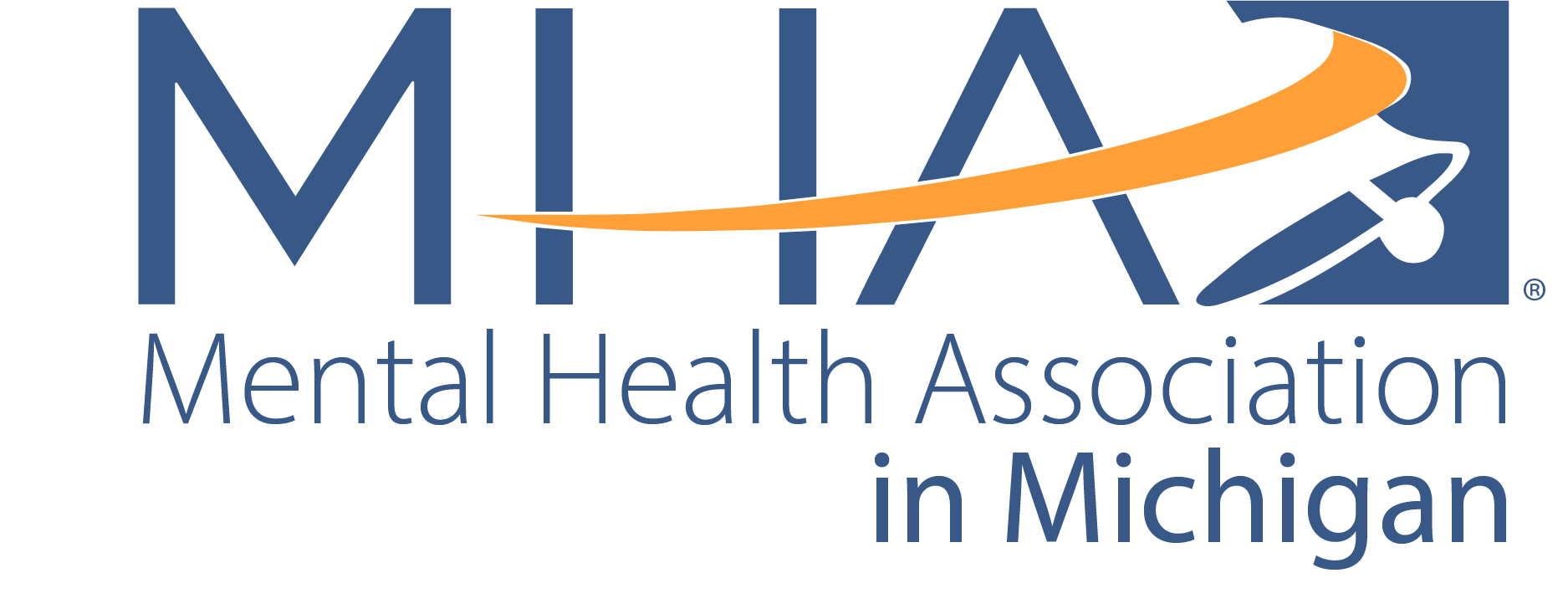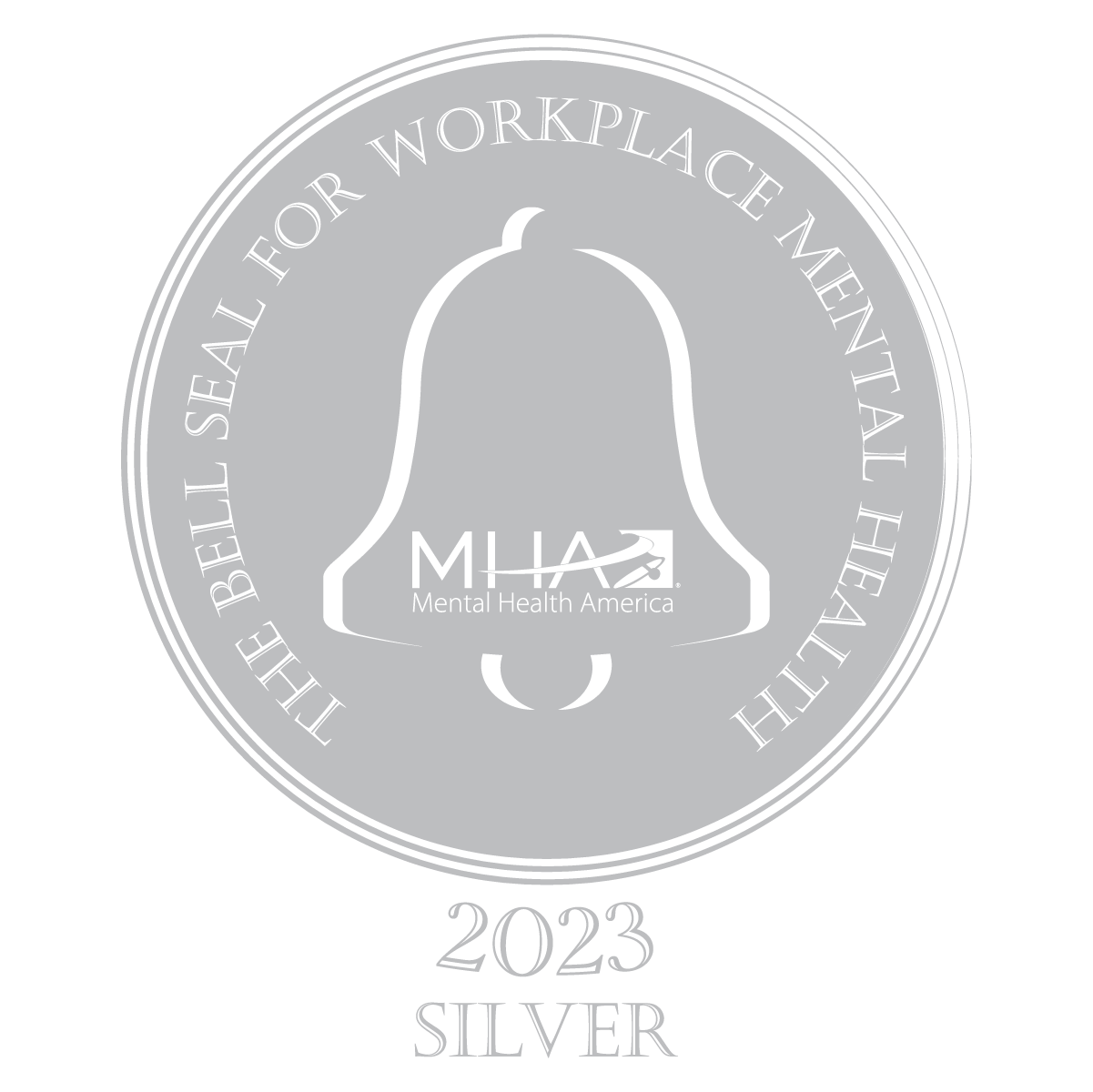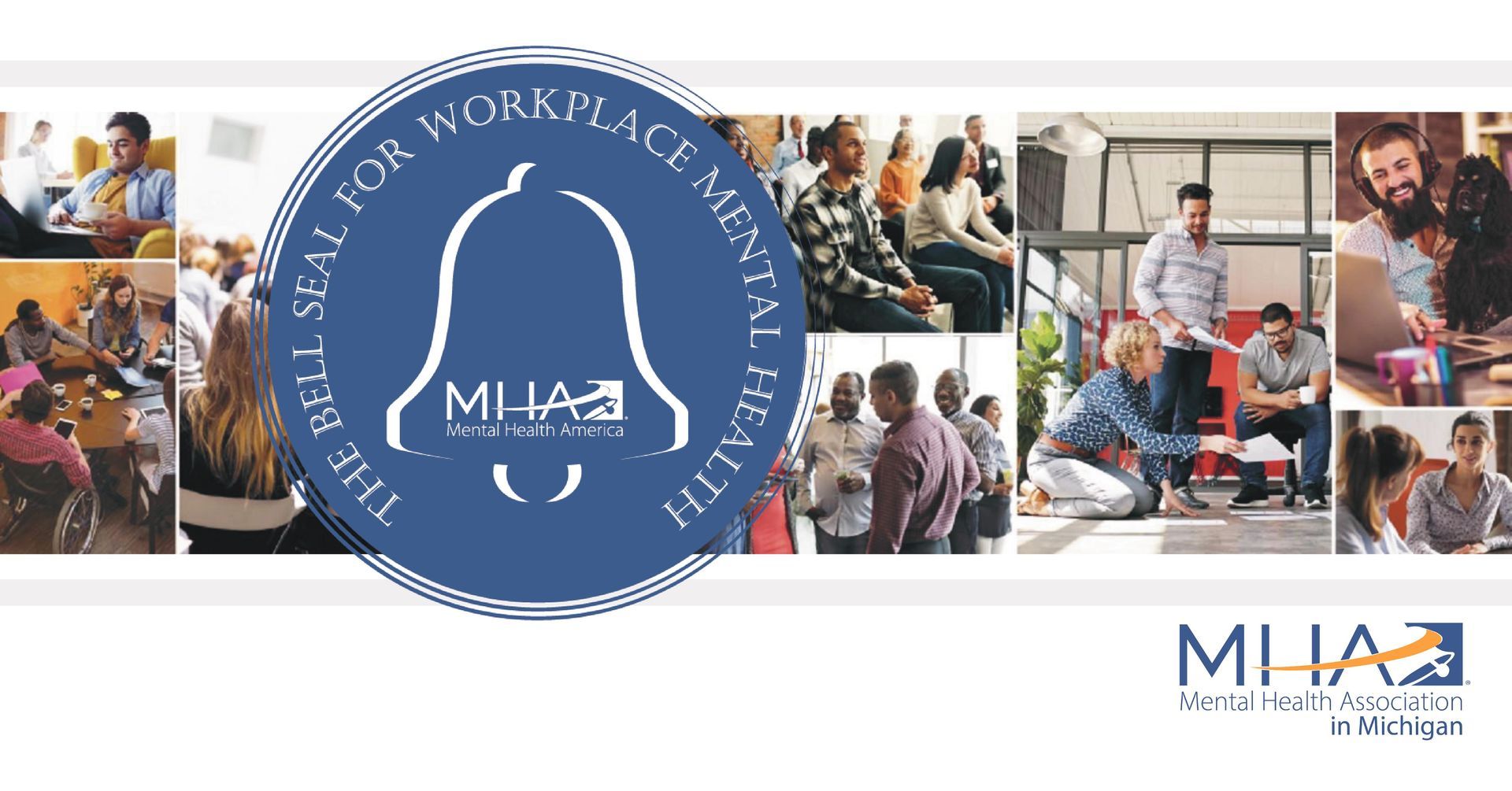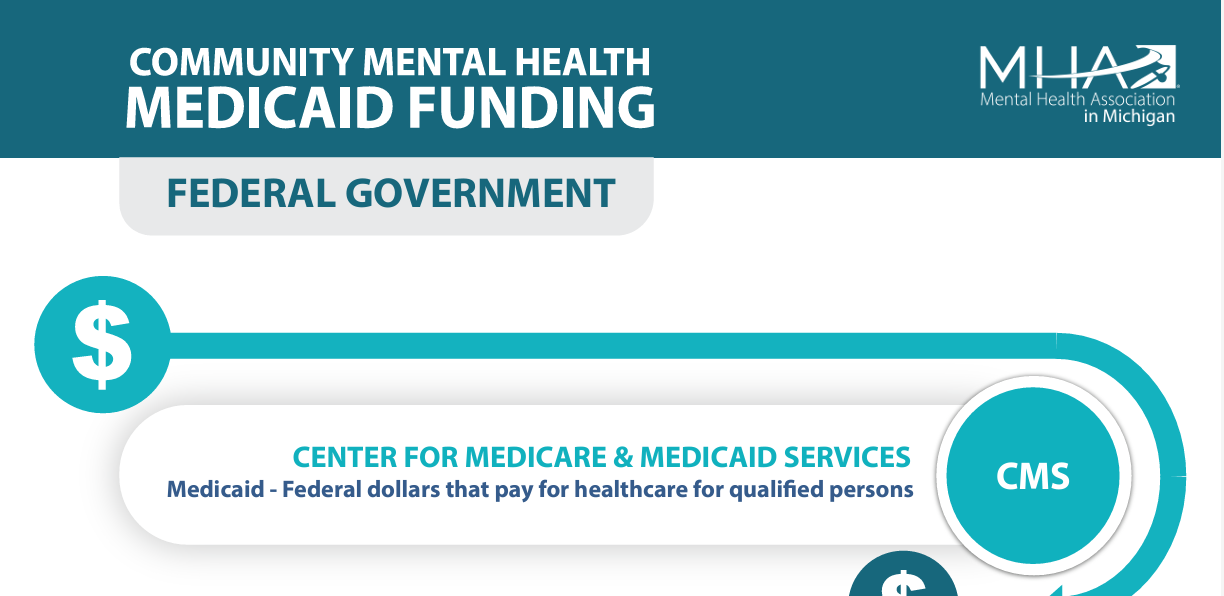Resources

Mental Health Screenings
A quick, easy and confidential way to determine if you may be experiencing a mental health condition is to take a screen. A screen is not a diagnosis, but a way of understanding if you are at risk, or if your symptoms are having enough of an impact that you should seek help from a doctor or other professional.
Only a trained professional, such as a doctor or a mental health provider, can diagnose a mental health condition. However, by printing the results of your screen and bringing it to your doctor, you can open up the conversation. The following pages have more information on finding treatment and supports: Get Help, Finding Therapy, and the SAMHSA Treatment Locator.
Are you in crisis? Please call the National Suicide Prevention Hotline at
1-800-273-TALK or
text "MHA" to the Crisis Text Line at 741741.
View 2023 infographic on anonymous screening data HERE.
View 2022 infographic on anonymous screening data
HERE.
MHAM is the state affiliate for the national organization, Mental Health America (MHA).
Helpful Resources
Support
Talk/Text/Chat lines
- 988 Suicide & Crisis Lifeline (Call or text 988) Chat Online | Click Here for what it is and how it works
- The Michigan Crisis and Action Hotline (MiCAL) 844-44-MICAL (64225) | mical.michigan.gov/s
- Crisis Text Line
- Text MHA to 741741 and you’ll be connected to a trained Crisis Counselor. Crisis Text Line provides free, text-based support 24/7.
- Disaster Distress Helpline
- The national Disaster Distress Helpline is available for anyone experiencing emotional #distress related to natural or human-caused disasters. Call or text (800) 985-5990 to be connected to a trained, caring counselor, 24/7/365
- disasterdistress.samhsa.gov
- The Trevor Project (LGBTQ+)
- Call (866) 488-7386 or text START to 678678. A national 24-hour, toll free confidential suicide hotline for LGBTQ youth
- www.thetrevorproject.org
- Trans Lifeline
- Dial (877) 565-8860 for US and (877) 330-6366 for Canada. Trans Lifeline’s Hotline is a peer support service run by trans people, for trans and questioning callers.
- Amala – The Muslim Youth Hopeline: Phone (855) 95-AMALA or (855) 952-6252
- Available Mon, Wed, Fri, Sat, and Sun 6 PM – 10 PM
- amala.mas-ssf.org
- StrongHearts Native Helpline - For any victims and survivors who need support, call (800) 799-7233 or (800) 799-7233 for TTY, or if you’re unable to speak safely, you can log onto thehotline.org or text LOVEIS to 22522
- strongheartshelpline.org/get-help
- Know the Signs: (800) 273-8255 | www.suicideispreventable.org
- National Drug & Alcohol Abuse Hotline: (800) 662-HELP (4357
- Youth Crisis Line (Text/talk/chat): (800) 843-5200
- Veterans Crisis Line (800) 273-8255 Press 1
- The National Sexual Assault Telephone Hotline - Call (800) 656.HOPE (4673) to be connected with a trained staff member from a sexual assault service provider in your area.
- Caregiver Help Desk - Contact Caregiver Action Network's Care Support Team by dialing (855) 227-3640. Staffed by caregiving experts, the Help Desk helps you find the right information you need to help you navigate your complex caregiving challenges. Caregiving experts are available 8:00 AM – 7:00 PM ET.
- The Partnership for Drug-free Kids Helpline - Call (855) 378-4373 if you are having difficulty accessing support for your family, or a loved one struggling with addiction who faces care or treatment challenges resulting from COVID-19 circumstances, the Partnership for Drug-free Kids' specialists can guide you. Support is available in English and Spanish, from 9:00am - Midnight ET weekdays and Noon - 5:00pm ET on weekends.
- Physician Support Line - Available at (888) 409-0141 every day from 8:00 AM - 1:00 AM ET. Physician Support Line is a national, free, and confidential support line service made up of 600+ volunteer psychiatrists to provide peer support for other physicians and American medical students.
- mhanational.org/crisisresources
- Mental Health Resources During Global Conflict - People across the world may find they struggle with their mental health during times of global conflict. This does not affect only those in active combat — these are humanitarian crises, impacting an entire community or region and beyond. These resources address how your mental health might be affected by major conflict events like war, terrorism, geopolitical tension, territorial disputes, and political instability. CLICK HERE for more information.
- Dial 2-1-1: If you need assistance finding food, paying for housing bills, accessing free childcare, or other essential services, visit 211.org or dial 211 to speak to someone who can help. Run by the United Way.
Resource List
- Information re: KB vs Lyon Lawsuit
The Michigan Department of Health and Human Services (MDHHS) has received preliminary court approval for the settlement of litigation alleging that medically necessary intensive home and community-based services were not timely provided to Medicaid-eligible children and youth as required by Medicaid’s Early and Periodic Screening, Diagnostic and Treatment (EPSDT) provisions. This litigation is known as D.D. v. MDHHS; formerly known as K.B. v. MDHHS. You can read the official class action suit HERE. The Class Action Notice, which outlines a summary of the settlement’s terms, as well as the full Agreement, can be found on the MDHHS website. Class members include all Medicaid-eligible beneficiaries under the age of 21 in the State of Michigan for whom a licensed practitioner of the healing arts acting within the scope of practice under state law has determined, through an assessment, that intensive home and community-based services are needed to correct or ameliorate their emotional, behavioral, or psychiatric condition.
- Mental Health Resources in Spanish - Click Here
- Open Counseling: Publicly-Funded Mental Health Services Available in Michigan:
https://www.opencounseling.com/public-mental-health-mi#five
- Headspace: Science-Backed Meditation and Mindfulness
https://www.headspace.com/mi
- Association for Children's Mental Health: Information, support, resources, referral and advocacy for children and youth with mental, emotional, or behavioral disorders and their families.
http://www.acmh-mi.org/
- Community Mental Health Services Programs (CMHSPs) and the organizations with which they contract provide a comprehensive range of services and supports to children, adolescents and adults with mental illnesses, developmental disabilities and substance use disorders in all 83 Michigan counties.
https://cmham.org/membership/cmhsp-directory/
- On Our Sleeves: Michigan Mental Health Resources for Children
https://www.onoursleeves.org/mental-health-resources/national-state-resources/michigan
- Trans Lifeline: Trans Lifeline is a national trans-led 501(c)(3) organization dedicated to improving the quality of trans lives by responding to the critical needs of our community with direct service, material support, advocacy, and education.
https://translifeline.org/
- Teen Line: Teen Line provides emotional support to youth. It is our mission to provide peer based education and support before problems become a crisis, using a national hotline, community outreach and online support.
https://www.teenlineonline.org/
- Boys' Town National Hotline: Get Help: Youth-Specific services (voice/text/chat/email)
Spanish: 1-800-SUICIDA (800-784-2432)
https://www.yourlifeyourvoice.org/Pages/ways-to-get-help.aspx
- Mental Health America Crisis Resource Center: Crisis Resource Center | Mental Health America (mhanational.org)
- Emergency Preparedness for Older Adults
Do you or someone you know need a resource for emergency preparedness planning? The Michigan Public Health Institute and its partners have made an Emergency Preparedness workbook for older and older adults living with disabilities with an accompanying facilitator’s guide to help social service professionals assist these underserved populations. Contact: Fayana Richards frichards@mphi.org
About Mental Health
Mental Health...
involves effective functioning in daily activities resulting in
- Productive activities (work, school, caregiving)
- Healthy relationships
- Ability to adapt to change and cope with adversity
Mental Illness...
refers collectively to all diagnosable mental disorders — health conditions involving
- Significant changes in thinking, emotion and/or behavior
- Distress and/or problems functioning in social, work or family activities
Mental health is the foundation for emotions, thinking, communication, learning, resilience and self-esteem. Mental health is also key to relationships, personal and emotional well-being and contributing to community or society.
Many people who have a mental illness do not want to talk about it. But mental illness is nothing to be ashamed of! It is a medical condition, just like heart disease or diabetes. And mental health conditions are treatable. We are continually expanding our understanding of how the human brain works, and treatments are available to help people successfully manage mental health conditions.
Mental illness does not discriminate; it can affect anyone regardless of your age, gender, geography, income, social status, race/ethnicity, religion/spirituality, sexual orientation, background or other aspect of cultural identity. While mental illness can occur at any age, three-fourths of all mental illness begins by age 24.
Mental illnesses take many forms. Some are mild and only interfere in limited ways with daily life, such as certain phobias (abnormal fears). Other mental health conditions are so severe that a person may need care in a hospital.
Diagnosis
Mental health conditions are treatable and improvement is possible. Many people with mental health conditions return to full functioning. Some mental illness is preventable.
It is not always clear when a problem with mood or thinking has become serious enough to be a mental health concern. Sometimes, for example, a depressed mood is normal, such as when a person experiences the loss of a loved one. But if that depressed mood continues to cause distress or gets in the way of normal functioning, the person may benefit from professional care. Family or friends may recognize changes or problems that a person doesn't see in themselves.
Some mental illnesses can be related to or mimic a medical condition. For example, depressive symptoms can relate to a thyroid condition. Therefore a mental health diagnosis typically involves a full evaluation including a physical exam. This may include blood work and/or neurological tests.
People of diverse cultures and backgrounds may express mental health conditions differently. For example, some are more likely to come to a health care professional with complaints of physical symptoms that are caused by a mental health condition. Some cultures view and describe mental health conditions in different ways from most doctors in the U.S.
Stigma around mental illness and treatment prevents many people from seeking needed treatment.
Treatment & Self-help
The diagnosis of a mental disorder is not the same as a need for treatment. Need for treatment takes into consideration how severe the symptoms are, how much symptoms cause distress and affect daily living, the risks and benefits of available treatments and other factors (for example, psychiatric symptoms complicating other illness).
Mental health treatment is based upon an individualized plan developed collaboratively with a mental health clinician and an individual (and family members if the individual desires). It may include psychotherapy (talk therapy), medication or other treatments. Often a combination of therapy and medication is most effective. Complementary and alternative therapies are also increasingly being used.
Self-help and support can be very important to an individual's coping, recovery and wellbeing. Lifestyle changes, such as good nutrition, exercise, and adequate sleep can support mental health and recovery. A comprehensive treatment plan may include individual actions (for example, lifestyle changes, support groups or exercise) that enhance recovery and well-being.
Primary care clinicians, psychiatrists and other mental health clinicians help individuals and families understand mental illnesses and what they can do to control or cope with symptoms in order to improve health, wellness and function.

News & Publications
MHAM Publications
- MHAM Case Statement: The case statement describes our vision for MHAM and why the work we do is so vital. - Click Here
- Mental Health Matters: MHAM's monthly e-newsletter provides public policy updates and other information which impacts the behavioral health care for you and those you love. All MHAM members receive it monthly via email. If you would like more information on membership CLICK HERE.
- MHAM Annual Report: Can be found HERE. (scroll down to annual report section)
- Mental Health America: 2024 Mental Health America (MHA) State of Mental Health in America - Click Here
MHAM in the News
- Michigan Senator Michael Webber and Rick Outman renew push to protect patient rights, improve oversight for state psychiatric care (March 2025) Click Here
- Interview on recovery with MHAM Board Member Nora Baylerian at the 2025 Community Mental Health Association of Michigan Conference. (February 2025) Click Here
- Funding gap threatens care for Michiganders utilizing community mental health (Second Wave Micchigan | September 2024) Click Here
- Governor Whitmer Makes Appointments to Boards and Commissions (Michigan.gov Press Release | August 2024) Click Here
- Michigan’s shortage of mental health beds ‘deep and prolonged’ (City Pulse | July 2024) Click Here
- Michigan direct care workers say they will make do with a .20 increase, but for how long? (Michigan Advance | July 2024) Click Here
- Trapped in a psych ward: Michigan doc pre-signed blank forms that can rob you of your freedom (WXYZ Detroit Channel 7 | March 2024) Click Here
- Mid-Michigan Matters: Back-to-school mental health challenges (WILX Channel 10 | August 2023) Click Here
- UHS finance chief said company favors patients whose insurance pays more (Stat News | July 2023) Click Here
- New psychiatric unit in northern Michigan to address severe care gap (Bridge Michigan | July 2023) Click Here
- After battle, retreat for young people mulling suicide OK’d near Ann Arbor (Bridge Michigan | July 2023) Click Here
- Voices of Youth: Washtenaw County students grapple with COVID's long-term mental health effects (concentrate | June 2023) Click Here
- Mental Health Association in Michian Talks about Mental Health Month (WILX TV 10 | May 2023) Click Here
A new Michigan legislative committee on mental health gives parents hope (Bridge Michigan | April 2023) Click Here - Free event in East Lansing aims to help community members navigate mental health system (WILX TV 10 | April 2023) Click Here
- Examining Mental Health Among Teens (CBS Detroit | March 2023) Click Here
- Psychiatric hospital for Michigan's sickest children struggles to stop patient escapes (WXYZ Detroit Channel 7 | February 2023) Click Here
- Press Release for Improv Fundraiser (November 2022) Click Here
- Crain's Detroit Business: This is What Real Care Integration Looks Like (February 2021) - Click Here






